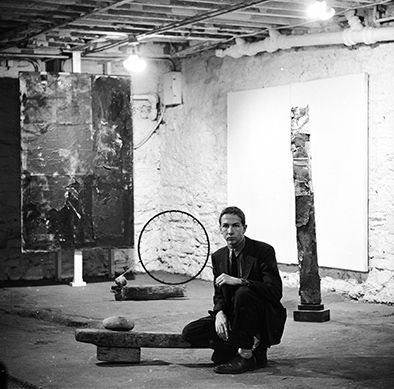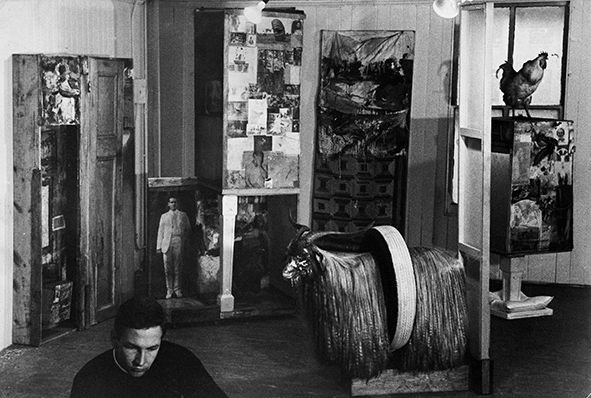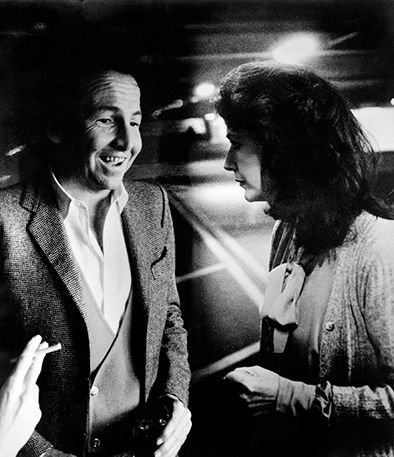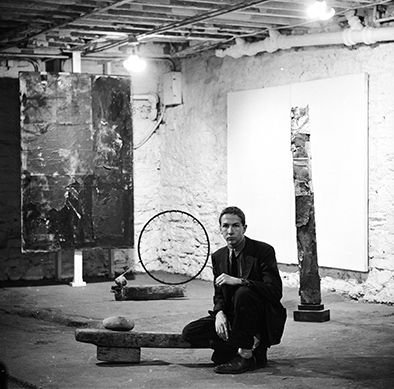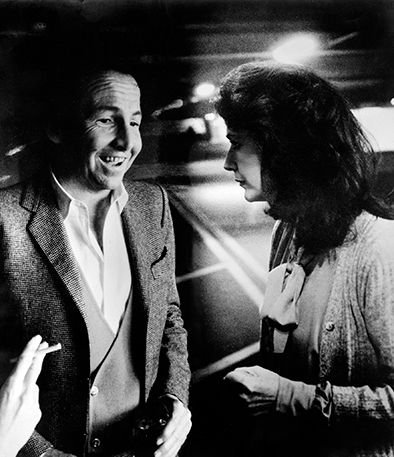Robert Rauschenberg
Un ritratto
One of the most innovative and influential artists of his generation, Robert Rauschenberg (Port Arthur, 1925 – Captiva Island, 2008), is a key figure in the radical upheavals that American visual art went through as from the late 1950s during the transition from Abstract Expressionism to Pop Art. Born in Texas and part Cherokee on his mother’s side, Rauschenberg daringly challenged all assumptions on taking his first steps in the art world. From his first stay in Paris, the formative experience at Black Mountain College under the guidance of Joseph Albers and his trip to Rome with Cy Twombly to his friendship with John Cage and Merce Cunningham and recognition at the international level with the award of the Golden Lion at the 1964 Venice Biennial, his art developed off the beaten track in the field of experimentation that breaks all the rules, transforming the two-dimensional space of the painting into a receptacle for heterogeneous materials.
Newspaper cuttings, pieces of fabric, photographs and found objects, nothing was excluded from his Combine paintings, hybrid creations halfway between painting and sculpture, which combine a love for discarded objects inherited from Dadaist collage with abstract-Art Informel brushwork.
Calvin Tomkins offers us extraordinary insight into the revolution whereby art emerged from the museums and galleries to occupy the centre of the social stage. He presents its leading figures: the old guard of Pollock and de Kooning and the new generation of Jasper Johns, Frank Stella and Andy Warhol alongside art dealers and gallery owners like Betty Parsons, Leo Castelli and the collector and patron Peggy Guggenheim. He documents the rise to the pinnacle of success of the artist who aimed more than any other in this context at a cumulative art, the irrepressible innovator who stated his desire to create a situation in which there was as much space for the viewer as the artist.
Textual index
1. Venezia 1964
2. Port Arthur
3. Più che altro pasticci
4. Black Mountain
5. Tragedia, estasi, fato e così via
6. Numeri bianchi
7. Un luogo in cui l’arte si fa
8. John Cage
9. Feticci personali
10. Enfant terrible
11. Danzatori
12. Jasper Johns
13. Perché non starnutire Rose Sélavy?
14. Uscire
15. Verso il teatro
16. Gli anni sessanta
17. Eroi vecchi e nuovi
18. The Construction of Boston
19. Riconoscimento
20. La Cappella Sistina sulla Broadway
21. Incidenti di viaggio in Europa e in Asia
22. Nine Evenings 205
23. La (non così) grande società
24. «Non c’è soluzione perché non c’è problema»
25. Il tramonto di un’epoca
26. Captiva
27. Tutto ciò che mi sta attorno Autobiografia
Robert Rauschenberg


